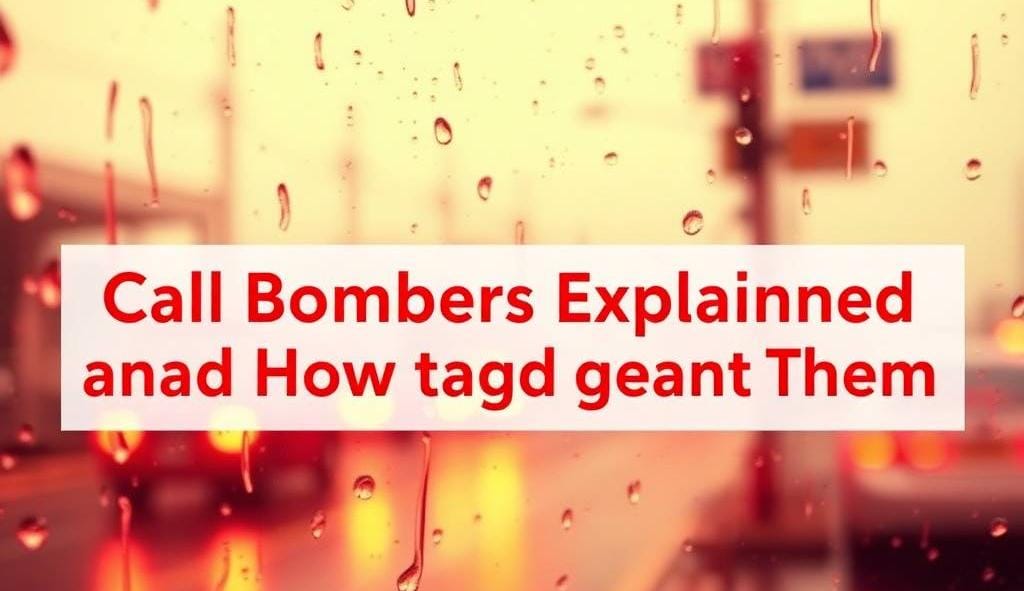The internet has brought many wonderful advancements to our lives, but it’s also opened the door to a host of malicious activities. One such activity that has gained attention in recent years is the use of “call bombers.” While the term may sound confusing, it’s important to understand what a call bomber is, how it works, and the potential risks associated with it. In this blog post, we will dive into everything you need to know about call bombers and why they are a growing problem in today’s digital world.
What is a Call Bomber?
At its core, a call bomber is a tool or service used to flood a phone number with excessive calls in a short amount of time. This can be done through automated systems that continuously dial a specific number, overwhelming the recipient with numerous calls in rapid succession. The aim is often to cause disruption or even harassment.
Call bombing can be used maliciously in various situations. For example, it might be used to annoy an individual, sabotage a business, or even create chaos within a system by tying up phone lines. The intent behind the use of a call bomber varies, but the outcome is generally the same: a flood of calls that makes it difficult for the target to carry on normal activities.
How Does a Call Bomber Work?
A call bomber works by automating the dialing process. These services can generate multiple calls within a very short period, which can lead to a situation where the phone is constantly ringing. Some call bombers are available through apps or websites that allow users to input a phone number and trigger an endless stream of calls to that number. In some cases, the calls may even show up as blocked or unknown numbers, which can make it difficult for the target to identify the source of the problem.
These services work by utilizing either VOIP (Voice over Internet Protocol) technology or the traditional phone network to place the calls. The number of calls placed, the frequency of the calls, and the duration of each call can all vary depending on the specific call bomber tool being used.
Why Are Call Bombers Used?
While many may wonder why anyone would want to engage in such disruptive behavior, there are several reasons why people might use a call bomber:
- Harassment: Some individuals use call bombers as a form of harassment to annoy or disturb others. This could be personal or an attempt to get revenge for perceived wrongdoings.
- Pranks: Some people see call bombing as a joke or a prank. While it might seem funny to them, it can have serious consequences for the target.
- Business Disruption: Competitors or malicious actors might use call bombers to disrupt businesses, especially those that rely on phone-based services or hotlines. This can tie up resources and hurt a company’s reputation.
- Political or Social Protests: In some cases, groups may use call bombers to disrupt lines of communication for government offices or institutions they are protesting against. The idea is to overwhelm the system and make it difficult for the target to function properly.
- Testing Security Systems: In some cases, call bombers might be used by individuals who are testing the resilience of phone systems. This could be a part of a larger campaign of denial-of-service (DoS) attacks, although this is illegal in many jurisdictions.
The Legal and Ethical Implications of Call Bombing
Using a call bomber can have serious legal implications. In most countries, call bombing is considered illegal because it constitutes harassment, disruption, and potentially even fraud if it leads to significant financial losses for businesses or individuals.
Laws around call bombing fall under the broader category of telecommunications and harassment laws. For example, in the United States, the Federal Communications Commission (FCC) has clear rules prohibiting the use of devices to make excessive calls or cause disruption to communication systems. Similar laws exist in other countries, and violators can face hefty fines, criminal charges, and even jail time depending on the severity of the offense.
Moreover, ethically, using a call bomber is highly questionable. It is a direct violation of someone’s peace and privacy. While some might dismiss it as a harmless prank, it can have real-world consequences such as stress, anxiety, and disruptions to personal or professional lives.
How to Protect Yourself From Call Bombers
If you ever find yourself targeted by a call bomber, there are several steps you can take to protect yourself:
- Block Unknown Numbers: Many smartphones allow you to block calls from unknown or private numbers. While this may not prevent all calls, it can reduce the number of incoming calls that are likely to be part of the bombing.
- Report the Issue: If you are consistently bombarded by unwanted calls, report the issue to your mobile service provider. They may be able to help by blocking the number or tracking down the source of the calls.
- Use Call-Blocking Apps: Several apps are available that can automatically detect and block spam calls or repeated calls from the same number. These apps can help limit the impact of a call bomber.
- File a Complaint: If you’re being harassed by a call bomber, you should file a complaint with your local authorities or relevant regulatory bodies, such as the FCC in the U.S. or the TRAI in India.
Conclusion
A call bomber might seem like an innocuous tool at first, but it can quickly become a serious problem. From personal harassment to business disruption, the impact of call bombing can be far-reaching. The best way to avoid falling victim to this type of attack is by understanding how it works, recognizing the risks, and taking steps to protect yourself. Remember, it is always important to respect other people’s time, privacy, and peace—something that a call bomber can never truly offer.



